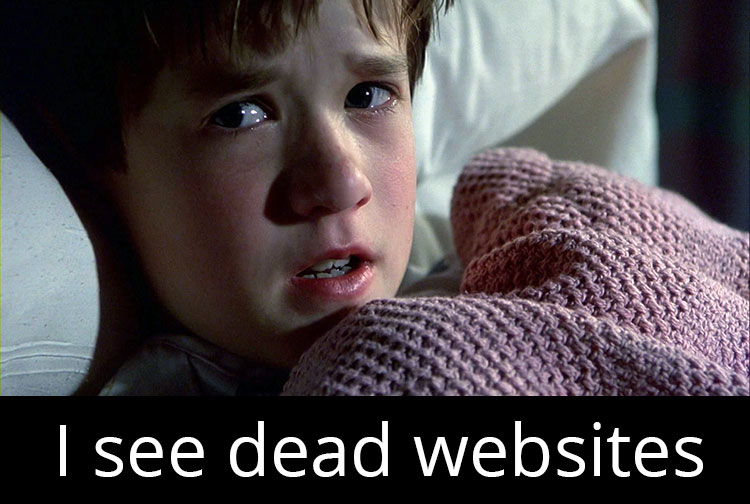It never fails. It’s Saturday night, you’re out to dinner with some friends, and you’ve just ordered your drinks, when your phone rings. Guess what? Your site is down. Your web presence is dead. Your online sales have ground to a halt.
You’ve become an Internet ghost.
This is the kiss of death for any ecommerce-focused website (Forbes reported that Amazon suffered losses to the tune of $66,240 per minute during a mere 30 minutes of downtime), but can be a major hassle regardless of your industry.
Is it avoidable? Well, accidents do happen, and you should never say never when it comes to web development. However, there are some easy steps you can take that may prevent the need for a frantic and costly emergency website repair.
Quality Hosting Choices
Your choice of web hosting service can play a big role in preventing unnecessary downtime. Shared servers mean shared resources; periods of heavy traffic may be more than your host can handle, putting your site out of commission until they can right the ship. What’s worse—poorly managed hosting services may be slow to respond when an emergency website repair is needed most.
Naturally, you’ll want to avoid situations like these. Quality web hosting services will minimize back-end hosting errors and will respond fast when their emergency website repair services are needed. You can also take matters into your own hands by using cloud-based CDN networks to keep your site alive during short periods of downtime. You can also contract with backup hosting companies that offer DNS management services to give yourself an alternative if your primary host crashes and burns.

Plugin Problems
On-site plugins and scripts can create numerous issues when improperly used. A proper web development boutique will ensure that this type of error won’t be an issue, but many web owners take it upon themselves to download questionable plugins or scripts that they feel will be of use to their business. This isn’t always the user’s fault, either—some plugins are just poorly made.
These plugins and scripts can slow your page down and even create site-crashing functionality issues guaranteed to frustrate your users and send you scrambling for your web host. Avoid installing plugins without the technical guidance of a web development firm or other IT authority, and make sure they’re from trusted developers. If you’ve encountered recent functionality issues with your site, you may want to perform an audit to determine which scripts are necessary and which are slowing you down.
Scary Security
And speaking of the problems that plugins can cause…
Your site security is a common culprit behind the need for emergency website repair. We know, good site security sounds like a no-brainer, but security holes in your system architecture can be notoriously hard to notice. This is compounded when you install shady plugins that create further vulnerabilities (or even worse—exploit the vulnerabilities that already exist). On top of that, DDoS attacks, hackers, and malware make proper site security an essential part of preventing the need for emergency repairs. Review your page functionality, antivirus programs, and encryption services to protect your transmitted data from unauthorized access.
Website outages are an unfortunate byproduct of the online services we offer. If you get caught with your pants on the ground and find yourself in need of a fast and efficient emergency website repair, services by Blueshoon have the power to bring your site back to life—and remove one more ghost from the Internet.
If you suspect your WordPress website might be compromised, give us your site’s information and we’ll run a free security scan for you and diagnose any issues.
